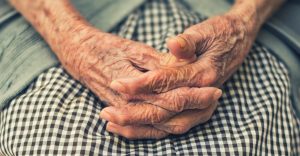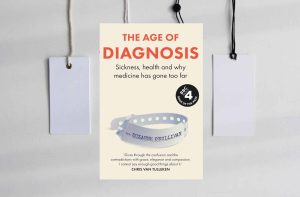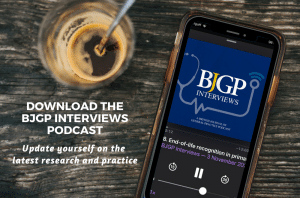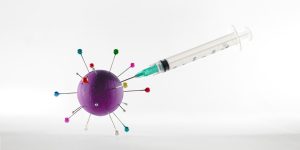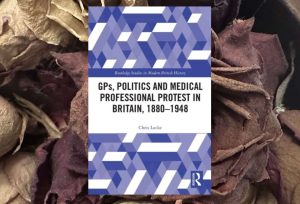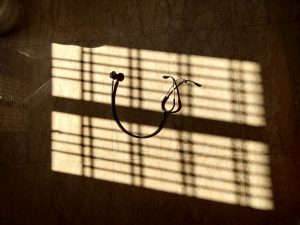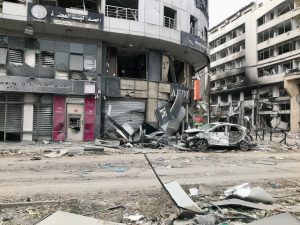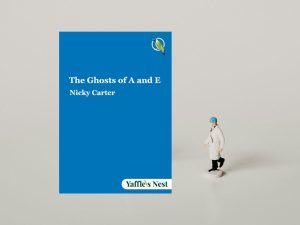There is still so much stigma and invisibility around pregnancy loss. Patients are often encouraged to “move on.” Clinicians are often too afraid of saying the wrong thing—so they say nothing at all.
Dave Mummery offers a dystopian vision of integrated neighbourhood teams two years from now (let's avoid this version). Soundtrack included.
Clovis Faggion Junior explores the economic motivations behind the continued application of enteral feeding in patients with advanced dementia, proposing that various stakeholders may have financial or logistical incentives to sustain this practice despite limited medical benefits.
Yonder is a diverse selection of primary care relevant research stories from beyond the mainstream biomedical literature ...
Elke Hausmann proposes a way of looking at Long Covid and ME that might engender a better understanding in GPs for patients living with these devastating and life changing conditions.
‘Trauma is patient, doc, if it's one thing I've learnt.’ His pale green eyes fix on mine dark pupils with an infinity of space. A poem by Giles Dawnay
The introduction of the new DES from April 2025 has again been heralded as an opportunity for primary care to take control and lead on improving the range of services available to patients. James Bennett reflects.
"... to my surprise, I’ve become the sort of doctor that has been in the same clinic for 20 years. I’ve never been bored, I’ve often been anxious, and I’ve been privileged to witness some of the most amazing and some of the
The Health Foundation has recently identified that the public’s first big priority across the NHS is to make it easier to get an appointment at their GP practice. Nada Khan explores what meaningful access looks like in general practice.
O'Sullivan and others fail to recognise the likelihood that most Long Covid patients will have already tried psychological and behavioural approaches ... the idea that there might be issues that, if addressed, could cure you, is the only thing we have left.
There is much debate in media about whether specific conditions are illnesses, and whether or how they should be treated. Peter Toon considers how these debates inform why we define a condition as illness rather than another type of problem, and the
Taking a look at her consultation model feels like the least painful of her goals to try and get done, and so she takes hold of the flaking metal handrail, slowly breathes in and out to centre herself, and walks down the
Obesity and maintaining a healthy weight are more complicated than excess calories and a lack of exercise. Too often, we are at the mercy of a complex interplay between our genes, personal health matters, the food we eat, the behaviour of those
In this episode, we look back at the 2025 BJGP Research Conference.
"Many general practitioners consider spirituality to be relevant to their patients’ health and important to primary care. However, our research showed that a number of GPs worry that addressing this issue is unscientific." Alistair Appleby offers 4 approaches.
Using a combination of a candid personal memoir, philosophy and her expert knowledge of ancient Greek tragedy, Edith Hall discusses neglected topic of the consequences of suicide.
Diagnosis ... provides structure to a narrative of dysfunction, or a picture of disarray, and imposes official order, sorting out the real from the imagined, the valid from the feigned, the significant from the insignificant ... In Life and Times this month
With high infection rates and the prevalence of numerous demotivating influences on vaccine uptake, a programme which focusses on negating the controllable barrier of inaccessibility is essential, argue Paul McNamara and Scott Wylie.
In this episode, we discuss diagnosis of vulval lichen sclerosus in general practice.
"It is March 2021. We’ve endured two lockdowns and a year of remote learning. We should be holding our Easter awayday for the GP registrars... but instead I am peering into my laptop. But in a miracle of communication, an artist on
"As a GP, I had many patients who told me how lucky they were to be so well in old age. My response was always the same — that they were not lucky but had looked after themselves, mainly by keeping very
"I am struck by how Eder pursued three passions – socialism, Zionism and psychoanalysis – that were all cutting edge causes for most progressive people in his time but have largely diverged from each other since then and become contested or marginalised."
In this episode, we discuss differential attainment in the MRCGP exams.
Yonder is a diverse selection of primary care relevant research stories from beyond the mainstream biomedical literature.
As Chris Locke demonstrates in his timely analysis of GPs, politics and the medical professional protest in Britain 1880-1948, GP's concerns about insufficient pay, workload, not being valued and fears that independence will be taken from them are not new.
This year's title is: “The GP model for delivery of Primary Care is outdated for the society in 2025” Find out how to enter!
"The Music and Mental Health Project [aims] to sensitise family physicians, other health professionals and managers, as well as patients and their families, to the transformative power of music as a tool for care in psychosocial suffering."
In this episode, we talk to Professor Helen Atherton about the increasing push for a digital-first approach in general practice.
Something shifted in my head, and I heard the sound of a penny dropping in a bank vault deep underground. I rummaged around in my desk for the Campbell-Frank Analyser and applied the scalp electrodes and mask with trembling hands.
Heidi, Annie, Tali, Suki, Lindy. These were the grammatically feminine names of electronic scribes being presented by a grid of entirely male CEOs or company representatives. Shier Ziser Dawood unmasks some Stepford Scribes.
Ponder this: The causal link between our actions and any outcome may be dubious, but the relief we feel at having done something, especially when there is an improvement of some kind, is so strongly reinforcing that we tend to ignore this.
Compassionate care helps us stay connected through our feelings and actions to the human aspect of medicine. And when that feeling is lost, it degrades our sense of who we are as clinicians. Nada Khan considers diagnoses and treatments for compassion fatigue.
We consider teaching medical ethics in conflict zones to be an act of solidarity and a profound commitment to addressing global health inequities. By nurturing ethical reasoning and fostering collaboration, initiatives like this play a crucial role in rebuilding resilient healthcare systems
In this episode, we talk to Dr Sam Merriel about PSA testing in asymptomatic men in general practice.
Worsening health inequality as an unintended consequence of trying to improve access must not be ignored. Sarah Burns weaves a cautionary tale.
"it was wonderful to attend the launch of Nicky Carter's first book of poetry, The Ghosts of A and E, in Liverpool a few weeks ago. Hearing them read by the author was a real privilege and took us all to those
Paul McNamara and Khalid Abdalla reflect on sauna therapy for the treatment of chronic disease.
In this episode, we talk to Dr Pete Edwards about effective safety netting practices.



